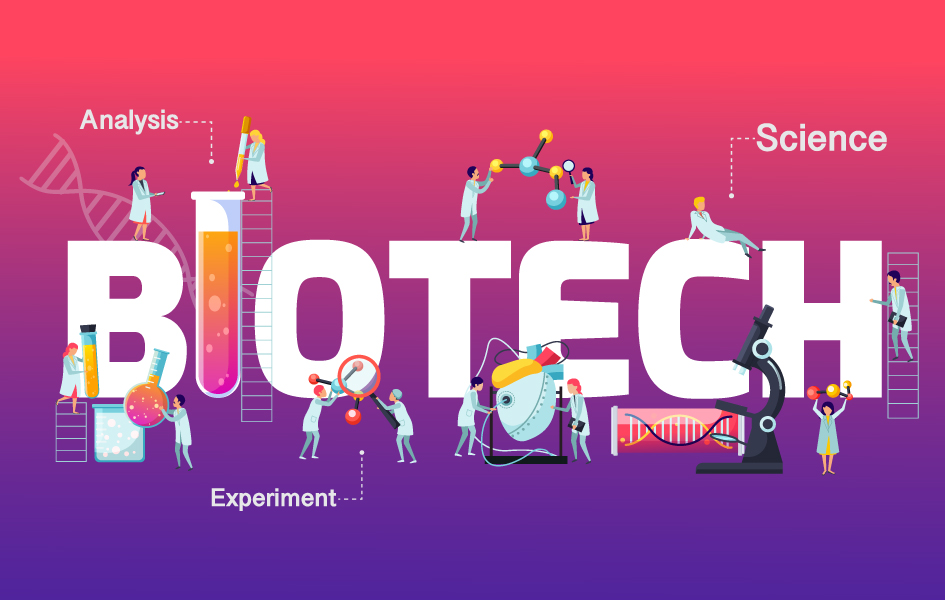In their latest report, Clinical OMIC has presented a list of up-and-coming companies to watch out for their ambitious and, so far successful, application of omics technologies and clinical genetic insights to deliver on the promise of precision medicine. These early-stage biotech companies are advancing precision medicine by applying AI, clinical genomics, and other new technologies.
In a commentary published on March 18 in the journal Cell, NIH Director Francis S. Collins, M.D., Ph.D., and Joshua C. Denny, M.D., CEO of the All of Us Research Program observed that when it comes to the data-driven transformation of healthcare enabled by precision medicine, “there is perhaps no more poignant example than the response to the COVID-19 pandemic.” “At the same time, COVID-19 has highlighted the need for precision medicine to move further and faster,” they added.
But, before we talk about a few of those biotech companies, let’s briefly dissect the terms in the discussion.
What is Precision medicine?
Precision medicine, according to the Precision Medicine Initiative, is "an emerging approach to disease treatment and prevention which takes individual variability of genes, the environment and lifestyles into account”. This method will allow doctors and researchers to more accurately predict which treatment and prevention strategies for a specific disease will be effective in which groups of people. It differs from a one-size-fits-all approach, in which disease treatment and prevention strategies are designed for the average person with little regard for individual differences.
What is Clinicogenomics?
It is the study of clinical outcomes with genomic data. Clinical data are affected by genomic factors. Clinicogenomics analyses a patient's entire genome to diagnose diseases and adjust medications explicitly for that patient. Whole-genome sequencing can detect more mutations and structural anomalies than targeted gene sequencing. Furthermore, targeted gene testing can only test for the diseases for which the doctor screens, whereas whole-genome testing screens for all diseases with known markers at the same time.
What is Omics technology?
'Omics’ technologies are primarily aimed at the universal detection of genes (genomics), mRNA (transcriptomics), proteins (proteomics), and metabolites (metabolomics) in a specific biological sample. Omics technologies have a broad range of applications.
Biotech companies to look out for in 2021
According to ResearchandMarkets.com, the precision medicine market is expected to nearly double by 2026, rising to $100.168 billion from $60.422 billion in 2020—a compound annual growth rate of 8.69 percent.
Arc Bio's Galileo ONE platform combines an automated bioinformatics pipeline with next-generation sequencing (NGS) lab workflow to deliver fast, comprehensive, and quantitative microbial profiling. The research use only (RUO) metagenomic sequencing solution employs the Illumina NGS technology to offer sample-to-report identification and quantification of over 1300 bacteria, fungi, DNA and RNA viruses, and parasites from a single sample in under 30 hours.
According to CEO Todd Dickinson, "Arc Bio's mission is to accelerate the metagenomic revolution in infectious disease by offering the first and only turnkey metagenomics solution with its Galileo ONE platform."
In a bid to scale, Arc Bio is going to raise funds in mid-2021, offering you a chance to invest in the company’s early stages. You can bet on them if you believe in what they are trying to achieve.
Deepcell is developing an artificial intelligence (AI) powered platform that will usher in a new era in cell morphology. The platform combines artificial intelligence with sophisticated microfluidics and high-throughput imaging to identify, sort, and classify live cells in any biological sample based on morphological characteristics for fundamental and translational research.
Deepcell's platform precisely photographs single cells in cell suspension and presents them to an imaging device using microfluidics-based technology. The imaging system collects detailed characteristics and sends them to the Deep Neural Network in real-time, which analyses the pictures and can profile and categorize cells based on morphological features.
Deepcell has raised $25 million to date, including a $20 million Series A headed by Bow Capital in December 2020, and a $5 million seed round led by Andreessen-Horowitz.
Phosphorus' mission is to make genomics a foundational part of everyone's health and wellness journey in order to extend and improve people's lives. Phosphorus has developed GeneCompass, a genomic screen that it claims is the most complete and clinically actionable genetic health evaluation for diagnosing and avoiding hereditary diseases, as well as a pharmacogenetic drug-response assessment.
GeneCompass Plus examines 440 genes in 301 monogenic diseases and disease susceptibility areas, as well as 126 distinct reactions to medications in cancer, cardiology, infertility, lipidology/emias, and metabolic disorders. GeneCompass' Managed Lab Service makes it possible for hospitals, health systems, and physician-owned laboratories to insource technology. Phosphorus' approach encourages and empowers healthcare providers to fully own the patient care continuum.
Phosphorus has a CLIA and CAP-certified laboratory in Secaucus, NJ, and is based in New York City.
If you found this blog interesting and would like to be kept in the loop in the future regarding companies doing ground-breaking work in the field of medicine, join our community of global healthcare workers here — My Medical Panel
Also, share this blog with HCPs you think would find it interesting!











